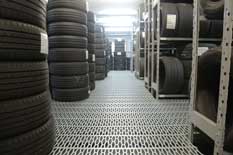The Competition Commission of India (CCI) issued a final order on August 31, 2018, against Apollo Tyres, MRF, CEAT, JK Tyre and Industries, and Birla Tyres, as well as their association. Automotive Tyre Manufacturers Association (ATMA) for engaging in cartelization in order to shore up prices of cross ply/bias tyres sold in the replacement market by each of them, as well as to limit and control production and supply.
As a result, the provisions of Sections 3(3)(a) and 3(3)(b), as well as Section 3(1) of the Competition Act, 2002, are violated, according to the CCI press statement.
The fines are as follows: Rs. 425.53 crore for Apollo Tyres, Rs. 622.09 crore for MRF, Rs. 252.16 crore for CEAT, Rs. 309.95 crore for JK Tyres, and Rs. 178.33 crore for Birla Tyres, in addition to a cease and desist order. A penalty of Rs. 0.084 crore was also levied against ATMA.
ATMA was also told to “disengage and disassociate” itself from collecting wholesale and retail prices, whether through member tyre companies or otherwise. Furthermore, under Section 48 of the Act, certain individuals from the aforementioned tyre companies and ATMA were held liable for the anti-competitive conduct of their respective companies/associations.
The statement furthers: “Previously, the Commission’s order had been kept in sealed cover in accordance with the directions of the Hon’ble Madras High Court, issued in W.A. No. 529 of 2018, preferred by MRF.
Thereafter, the Division Bench of the Hon’ble Madras High Court vide an order dated 6 January 2022, dismissed the aforesaid writ appeal. Aggrieved with the same, the tyre companies preferred SLPs before the Hon’ble Supreme Court, which were dismissed vide its order dated 28 January 2022.
This case was initiated on the basis of a reference received from the Ministry of Corporate Affairs (MCA) under Section 19(1)(b) of the Act. The said reference was based on a representation made by All India Tyre Dealers Federation (AITDF) to the MCA. “
The Commission noted that the tyre makers had exchanged price-sensitive data through their association’s platform, ATMA, and had made collective decisions on tyre prices.
The Commission also found that ATMA collected and compiled information relating to company-wise and segment-wise data (both monthly and cumulative) on production, domestic sales and export of tyres on a real time basis.
The Commission held the five tyre manufacturers and ATMA guilty of contravention of the provisions of Section 3 of the Act, which prohibits anti-competitive agreements including cartels, during 2011-2012

